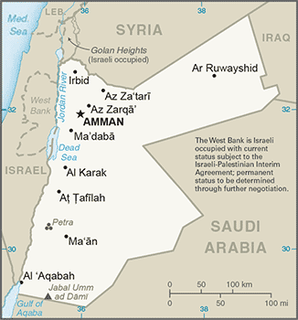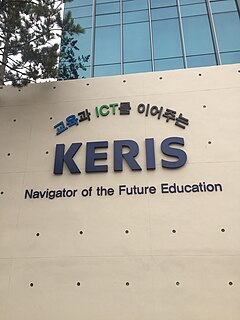
Education in the Netherlands is characterized by division: education is oriented toward the needs and background of the pupil. Education is divided over schools for different age groups, some of which are divided in streams for different educational levels. Schools are furthermore divided in public, special (religious), and general-special (neutral) schools, although there are also a few private schools. The Dutch grading scale runs from 1 to 10 (outstanding).
Education in China is primarily managed by the state-run public education system, which falls under the Ministry of Education. All citizens must attend school for a minimum of nine years, known as nine-year compulsory education, which is funded by the government. Compulsory education includes six years of primary education, typically starting at the age of six and finishing at the age of twelve, followed by three years of junior secondary education. Middle schooling is followed by three years of high school, by the end of which secondary education is completed. Laws in China regulating the system of education include the Regulation on Academic Degrees, the Compulsory Education Law, the Teachers Law, the Education Law, the Law on Vocational Education, and the Law on Higher Education.
The International Standard Classification of Education (ISCED) is a statistical framework for organizing information on education maintained by the United Nations Educational, Scientific and Cultural Organization (UNESCO). It is a member of the international family of economic and social classifications of the United Nations.

Education in Belgium is regulated and for the most part financed by one of the three communities: Flemish, French and German-speaking. Each community has its own school system, with small differences among them. The federal government plays a very small role: it decides directly the age for mandatory schooling and indirectly the financing of the communities.

Education in Rwanda has undergone considerable changes throughout Rwanda's recent history, and has faced major disruptions due to periods of conflict. Despite improvements to education and literacy as part of the country's rebuilding after the 1994 genocide, the education system still faces challenges including low school enrolment rates and limited resources. The education system is overseen by the Ministry of Education.

Education in Mauritius is managed by the Ministry of Education & Human Resources, which controls the development and administration of state schools funded by government, but also has an advisory and supervisory role in respect of private schools. The Tertiary education is maintained by the Ministry of Tertiary Education, Science, Research and Technology. The government of Mauritius provides free education to its citizens from pre-primary to tertiary levels. Since July 2005, the government also introduced free transport for all students. Schooling is compulsory up to the age of 16. Mauritian students consistently rank top in the world each year for the Cambridge International O Level, International A and AS level examinations.

Before the arrival of European settlers, who introduced a formal education system addressed to the elites, education in Ghana was mainly informal and based on apprenticeship. Pre-Independent Ghana was known as the Gold Coast. The economy of the pre-colonial Gold Coast was dependent on subsistence farming, in which farm produce was shared within households, and members of each household specialized in providing necessities. These included cooking utilities, shelter, clothing, and furniture. Trade with other households was therefore practiced on a very small scale. This made economic activities in the pre-colonial Gold Coast, a family institution: family-owned and family-controlled. As such, there was no need for employment outside the household that would have otherwise called for disciplines, values, and skills through a formal education system. After colonization, Ghana's economy became a hybrid of subsistence and formal economy.

The education system of the Hashemite Kingdom of Jordan has been improved consistently since the mid-1900s. The role played by a good education system has been significant in the development of Jordan from a predominantly agrarian to an industrialized nation. Jordan has the highest number of researchers in research and development per million people among all the 57 countries that are members of the Organisation of Islamic Cooperation (OIC). In Jordan there are 8060 researchers per million people, while the world average is 2532 per million.
The history of formal education in Estonia dates back to the 13–14th centuries when the first monastic and cathedral schools were founded. The first primer in the Estonian language was published in 1575. The oldest university is the University of Tartu which was established by the Swedish king Gustav II Adolf in 1632. In 1919, university courses were first taught in the Estonian language.
The State of Kuwait, located at the head of the Persian Gulf, supports an educational policy that seeks to provide an opportunity to all children, irrespective of their social class, including children with special needs. Kuwait was ranked 63rd on the Human Development Index report for 2011 by the United Nations Development Programme, placing Kuwait above the regional average.

The Constitution of North Macedonia mandates free and compulsory primary and secondary education in the Republic of North Macedonia, and the Law on Primary Education specifies that all children from 6 to 15 years of age attend school for a compulsory 9 years. The Law on High School Education specifies that all adolescents from the ages of 15 - 19 must attend high school for 4 years.

The education system of Djibouti is strongly influenced by France.
Since gaining independence from France in 1956, the government of Tunisia has focused on developing an education system which produces a solid human capital base that could respond to the changing needs of a developing nation. Sustained structural reform efforts since the early 1990s, prudent macroeconomic policies, and deeper trade integration in the global economy have created an enabling environment for growth. This environment has been conducive to attain positive achievements in the education sector which placed Tunisia ahead of countries with similar income levels, and in a good position to achieve MDGs. According to the HDI 2007, Tunisia is ranked 90 out of 182 countries and is ranked 4th in MENA region just below Israel, Lebanon, and Jordan. Education is the number one priority of the government of Tunisia, with more than 20 percent of government’s budget allocated for education in 2005/06. As of 2006 the public education expenditure as a percentage of GDP stood at 7 percent.
Education in the British Virgin Islands is largely free and is a requirement for children ages 5 to 17. The British Virgin Islands has a total of 15 public primary schools and 4 secondary public schools. In addition to the public schools, there are 10 primary private schools and 3 secondary private schools. The School year is from September to June. The British Virgin Islands is a part of the British Overseas Territories and therefore the educational system is very similar to the traditional learning system in the United Kingdom. Primary schools are focused on establishing the basics of an academic curriculum and host students between the ages of 5 to 12. After the completion of primary school, students move on to secondary school and pre-university. Secondary school is for students between the ages of 13 and 17. Following the completion of secondary education, students may write their Caribbean Secondary Education Certificate. There are approximately 2,700 students who attend primary school for the first 7 years of their required education; however less than 1,800 students successfully finish the following 4 required years of secondary school and complete their certificate exam incorrect, https://bvinews.com/87-percent-success-in-grade-12-top-school-named/]. Students who chose to continue their education after the secondary education certificate may move on to an additional 2 years of schooling. Passing the exams entitles students the right to continue their studies even further at the University of the Virgin Islands. At the University, students can obtain associate, bachelors, and master's degrees in the departments of business, education, liberal arts and social sciences, or science and mathematic.

KERIS is a governmental organization under the South Korean Ministry of Education, Science and Technology that develops, proposes, and advises on current and future government policies and initiatives regarding education in South Korea.
The Global e-Schools and Communities Initiative is an international not-for-profit organisation providing demand-driven assistance to developing countries seeking to harness the potential of Information and Communication Technologies (ICT) to improve their education systems.
The NCEA Duke's Secondary School is an 11–19 academy in Ashington, Northumberland, England. It is part of the Northumberland Church of England Trust occupying the Josephine Butler Campus of its predecessor The Northumberland Church of England Academy which was an all-through school spread out across six campuses in southeastern Northumberland.
Rashtriya Madhyamik Shiksha Abhiyan (RMSA) is a centrally sponsored scheme of the Ministry of Human Resource Development, Government of India, for the development of secondary education in public schools throughout India. It was launched in March 2009. The implementation of the scheme has started from 2009-2010 to provide conditions for an efficient growth, development and equity for all. The scheme includes a multidimensional research, technical consulting, various implementations and funding support. The principal objectives are to enhance quality of secondary education and increase the total enrollment rate from 52% to 75% in five years, i.e. from 2009–2014. It aims to provide universal education for all children between 15–16 years of age. The funding from the central ministry is provided through state governments, which establish separate implementing agencies. The total budget allocated during the XI Five Year Plan (2002-2007) was ₹2,012 billion (US$27 billion).
The Spanish Baccalaureate is the post-16 stage of education in Spain, comparable to the A Levels/Higher (Scottish) in the UK, the French Baccalaureate in France or the International Baccalaureate. It follows the ESO. After taking the Bachillerato, a student may enter vocational training or take the "Selectividad" tests for admission to university.
Information Communications Technology is usually included in the Home Economics and Livelihood Education program in grade school and taught through the Technology and Home Economics program in high school. The recent status of ICT education in the Philippines, along with other Southeast Asian countries, was surveyed by the Southeast Asian Ministers of Education Organization (SEAMEO) in 2011. Using the UNESCO model of ICT Development in Education, the countries were ranked as Emerging, Applying, Infusing or Transforming. The Philippines were ranked at the Infusing stage of integrating ICT in education, indicating that the country has integrated ICT into existing teaching, learning and administrative practices and policies. This includes components such as a national vision of ICT in education, national ICT plans and policies, complementary national ICT and education policies, professional development for teachers and school leaders, community or partnership and teaching and learning pedagogies. A 2012 study reported that public high schools in Metro Manila had a computer to student ratio of 1:63. While 88 percent of schools have internet connections, half of the students claimed not to be using it.










